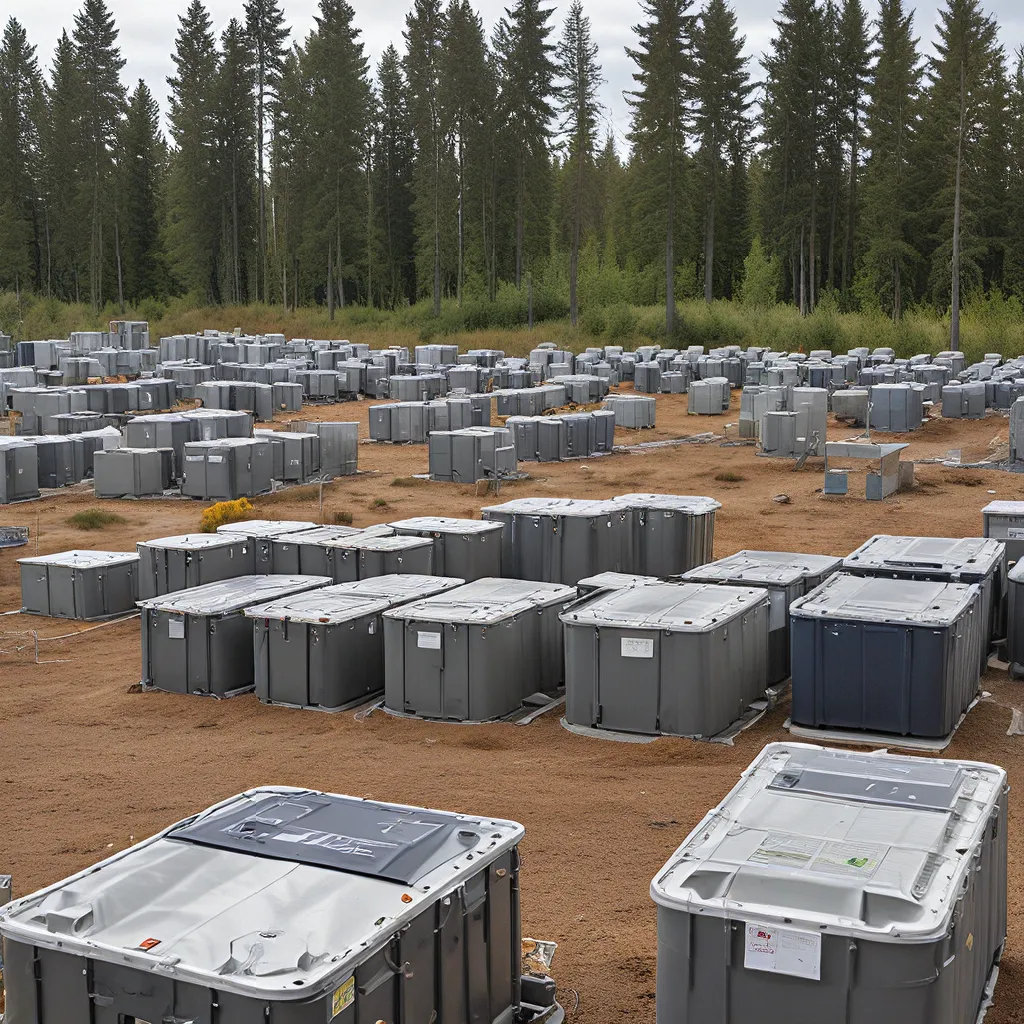
Buckle up, my friends, because we’re about to embark on an electrifying journey into the world of microbial fuel cells (MFCs). These little powerhouses have the potential to revolutionize the way we handle wastewater, and trust me, the story only gets more fascinating the deeper we dive.
Powering Up with Microbes
Let’s start with the basics – what exactly are MFCs? In a nutshell, they’re mini power plants that use microorganisms as the secret sauce to generate electricity. These tiny catalysts, known as exoelectrogens, have the remarkable ability to convert the chemical energy stored in organic matter into electrical current. Think of them as nature’s own personal battery chargers.
Now, you might be wondering, “How do they do that?” Well, it’s all about the art of electron transfer. These microbes can literally push electrons out of their cells and onto an electrode, creating a flow of electricity that we can harness. It’s like having a team of tiny electricians wired up and ready to power our gadgets.
Waste Not, Want Not
But here’s where it gets really interesting – MFCs aren’t just about generating electricity. They’re also masters of waste management. By feeding these microbes a steady diet of organic matter, we can not only produce power but also purify our wastewater in the process. Talk about a two-for-one deal!
Imagine a world where your toilet flushes could be converted into renewable energy to power your home. Or a scenario where the dirty dishwater from your kitchen sink could be transformed into clean, potable water. MFCs are paving the way for a more sustainable and self-sufficient future, and trust me, the possibilities are endless.
Reaching for the Stars
But the real kicker? MFCs aren’t just for Earth – they’ve got their sights set on conquering the final frontier: space exploration. That’s right, these little microbial powerhouses could be the key to sustaining life on long-duration space missions, where every drop of water and watt of power counts.
Imagine a scenario where astronauts aboard the International Space Station (ISS) are able to recycle their own waste and generate electricity to power their living quarters, all thanks to the magic of MFCs. It’s like having a self-sustaining ecosystem in the vastness of space, where every resource is meticulously reused and repurposed.
Overcoming the Challenges
Of course, as with any groundbreaking technology, MFCs aren’t without their challenges. There’s still plenty of research and development to be done to optimize their efficiency and scale them up for large-scale applications. But the potential is undeniable, and the race is on to unlock the full power of these microbial marvels.
One of the key hurdles is boosting the power output of MFCs. While they can currently produce decent amounts of electricity, we need to find ways to crank up the volume and make them viable as a primary power source. Researchers are exploring everything from new electrode materials to genetically engineered microbes to push the boundaries of what’s possible.
Another challenge is ensuring the long-term stability of MFCs, especially in the harsh environment of space. Factors like microgravity, radiation, and extreme temperatures can take a toll on the delicate balance of these microbial ecosystems. But innovative solutions, like specialized coatings and bioreactor designs, are being developed to keep these little powerhouses running strong, even in the most hostile of conditions.
A Future Powered by Microbes
As we continue to push the boundaries of what’s possible with MFCs, the implications for our planet and beyond are nothing short of mind-blowing. Imagine a world where our wastewater is transformed into clean, renewable energy, where our space habitats are powered by the very microbes that sustain us, and where sustainability is the name of the game.
It’s a future that’s well within our grasp, and the team at Alpha Wastewater is at the forefront of this microbial revolution. They’re not just talking the talk – they’re walking the walk, using cutting-edge MFC technology to help communities reduce their carbon footprint and embrace a more sustainable future.
So, my friends, the next time you flush the toilet or run the tap, take a moment to ponder the power of those tiny microbes. They might just hold the key to unlocking a better tomorrow – one that’s fueled by the very waste we’ve been so quick to discard.
Diving Deeper into the Microbial Frontier
Of course, this is just the tip of the iceberg when it comes to the incredible potential of MFCs. The research in this field is ongoing, and the possibilities are endless. From bioremediation to resource recovery, these microbial marvels are poised to transform the way we approach some of the most pressing environmental challenges of our time.
But the journey doesn’t stop there. Space exploration is where the real excitement lies, as we push the boundaries of what’s possible with MFCs in the harshest of environments. Imagine a future where Martian outposts are powered by the very microbes that help us survive on the Red Planet, or where lunar habitats are built and maintained using the renewable resources generated by these microbial powerhouses.
It’s a future that’s closer than you might think, and the team at Alpha Wastewater is working tirelessly to make it a reality. So, why not join the revolution and explore the endless possibilities that these microbial marvels have to offer? Who knows – your next flush could be the start of an electrifying journey towards a more sustainable and cosmic future.